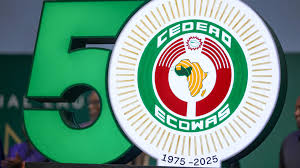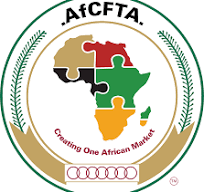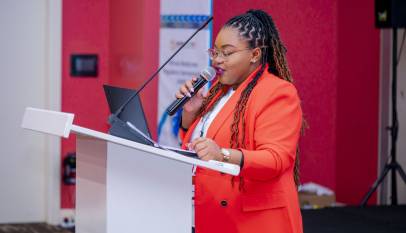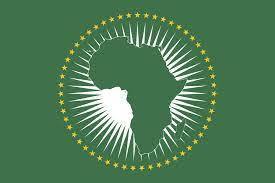OCCEN: Empowering youth and local citizens for effective civic engagement
The 3-day training for the youth activists from across northern Nigeria on democracy and civic engagement succeeded in empowering the young minds with the necessary skills for effective engagement with their elected representatives

The failure of governance at the grassroots could to a large extent be blamed on the citizens’ lack of awareness and capacity to be able to effectively engage policymakers and elected representatives. Local citizens’ poor capacity to engage political actors and ensure transparent and good governance is responsible for the dearth of accountability and transparency at the level of local communities.
And although they constitute not less than 60% of Nigeria’s population and they are the country’s greatest asset, Nigerian youth’s participation in civic engagement and governance processes is discouragingly low. For Nigeria to achieve sustainable development, its vast youth population must be adequately equipped and empowered with the necessary skills to be able to persuasively engage public officers towards accountability and transparency in democratic governance.
The Organization for Community Civic Engagement, OCCEN, is a nonprofit organization dedicated to working with local citizens, and communities across Nigeria, to help them reach their full potential through promoting good governance, human rights and inclusive democracy that works for all.
”OCCEN seeks a society that supports and encourages every citizen in his/her own capacity and aspirations, and places no limits on what they can offer for collective good and better society,” said Abdulrazaq Alkali, the national coordinator of OCCEN, during a recent 3-day training organized for youth activists on civic engagement by the organization in Kano, northwestern Nigeria.
“We pursue this vision through integrated approach, commitment to public awareness that leads to informed understanding and involvement in democracy and human rights promotions as well as the promotion of justice that seeks to change unjust structures affecting local citizens.”
Alkali, while speaking on the 3-day training on civic activism for youth in northern Nigeria, said it was meant to build the capacity of young people to be able to “advocate for the advancement of democracy in their communities” adding that no nation could build its democracy and achieve sustainable development by alienating its young population.
“We want to provide a platform for young people to engage with political actors, by training them on how to network and build alliances; create different platforms to engage with one another and build strong networks will help them tap resources from different angles. We also exposed the youth participants at the training to the #NotTooYoungToRun Bill which is currently at the National Assembly and is seeking for the reduction of the age qualification for those vying for political offices to allow for more youth participation,” he told African Newspage.
The #NotTooYoungToRun Bill is seeking for the alteration of sections 65, 106, 131, and 177 of the 1999 Nigerian constitution (as amended) to reduce age qualification for the office of the president (from 40 to 30 years); governor (from 35 to 30); senator, (from 35 to 30); member of federal house of representatives and state house of assembly (from 30 to 25), respectively. It also seeks to mainstream independent candidacy in the country’s electoral process.
Speaking to African Newspage at the training event, one of its facilitators, Zikirullahi Ibrahim, a foremost civic activist and executive director of the Resource Centre for Human Rights and Civic Education, CHRICED, said youth involved in civic engagement needed to be trained since only well-informed youth would be able to take the future of their countries in to their hands and ensured things were done well.
“Local governments are the ideal levels for active citizen participation,” said Ibrahim, who is also the chair of the Transition Monitoring Group, TMG, which is Nigeria’s biggest coalition of civic organizations monitoring elections. “On monthly basis, resources are being allocated to the local government areas, we should begin to question how those resources are being used and if the state governments are withholding it, people should raise alarm on the issue.”
Ibrahim, who decried the fact that people at the level of the Local Government Areas, LGAs, were never aware of how the LGAs formulate and implement their budgets said until citizens begin to monitor the use of “our collective resources” at local level there would never be transparency and accountability when it comes to governance at the grassroots.
“Ideally,” he said “The people give the LGAs their priorities, based on which they design their budgets and the youth would monitor the resources allocated to the LGAs, from the level of budget preparation to its implementation.”

Salamatu Zakari, is a female youth participant at the training, from Jigawa state. She told African Newspage that she had learnt a lot at the training adding that she has now realized that as a youth she could play an active role in the political process of her community.
Another youth participant, Nuruddeen Jimoh, said himself and other participants from his native Kaduna state were now well armed with a lot of skills on how youth could effectively engage in civic activism. “The training will go a long way in helping us sensitize and enlighten the youth of Kaduna state. There is still need for awareness among the youth regarding their civic responsibility and how they could go about demanding for their civic rights,” he said.
“The training experience is wonderful and a great achievement for us as youth activists,” said Musbahu Basirka, another youth participant at the training. “We have learnt a lot at the training regarding civic engagement, constitutional democracy, fundamental human rights and good governance. We would share the knowledge we have acquired with our colleagues working with various community based organisations across northern Nigeria.”
Youth participants at OCCEN’s 3-day training were exposed to a diverse range of topics including civic engagement, universal and fundamental human rights, constitutional democracy as well as networking and alliance building, which left lasting impact on them as well as strengthened their capacities as they continue to engage with their elected representatives in the communities.












